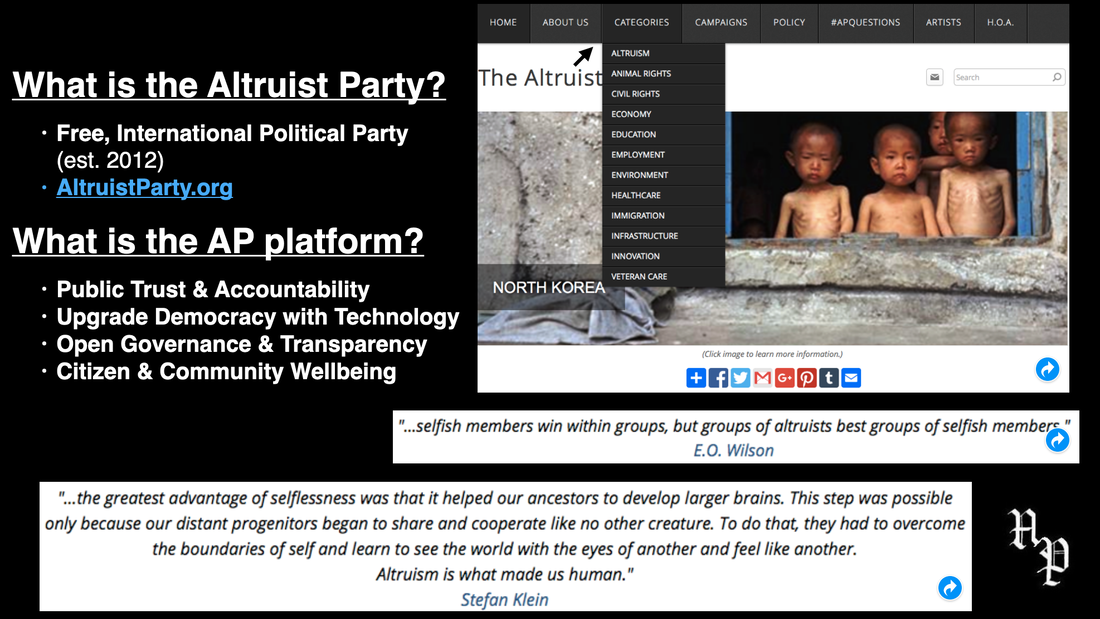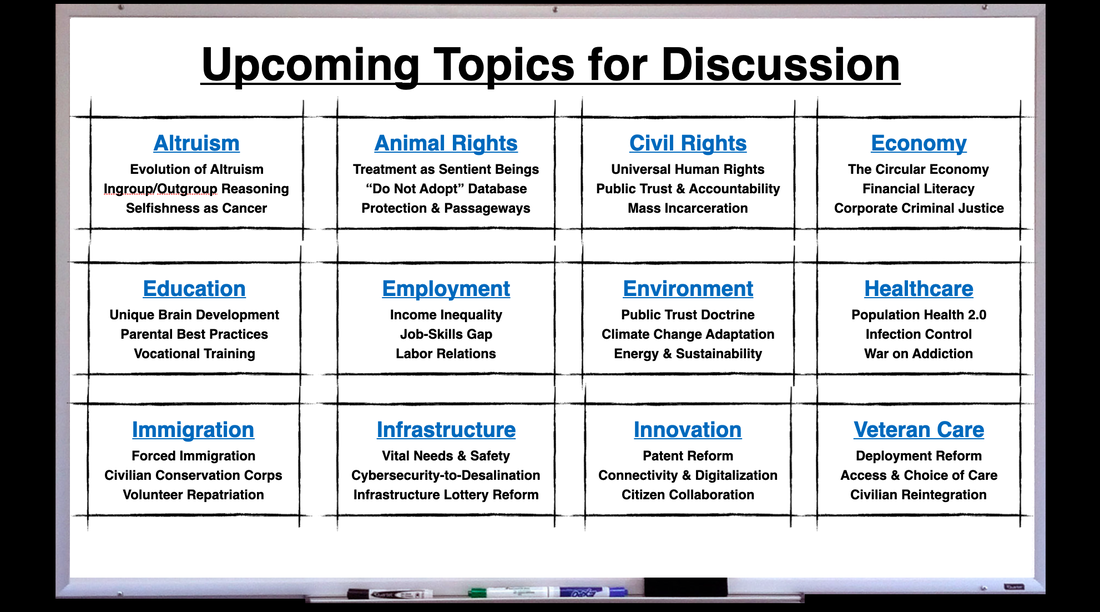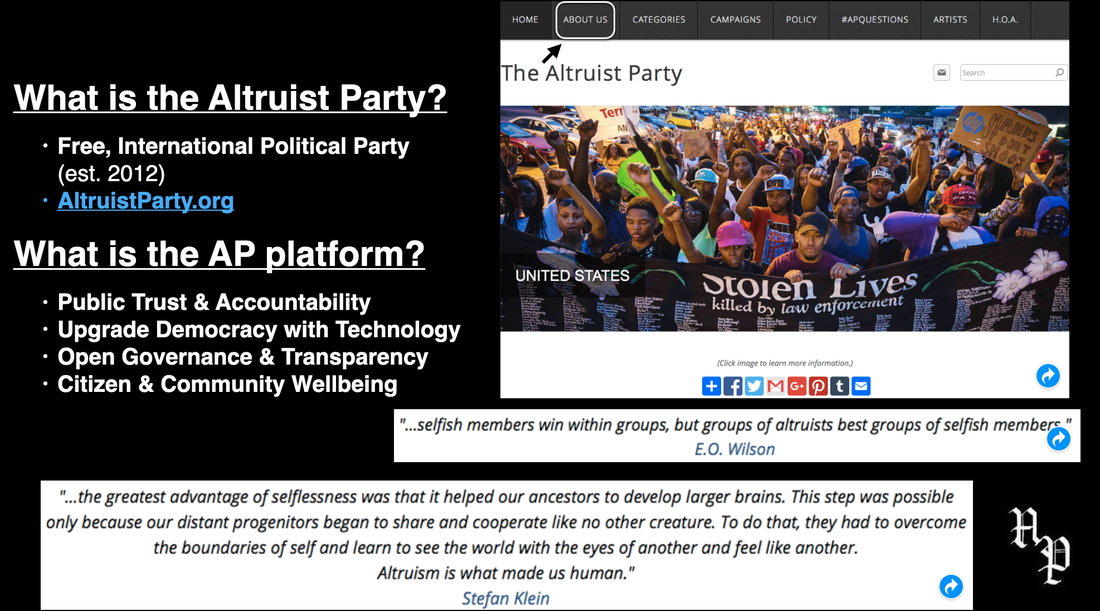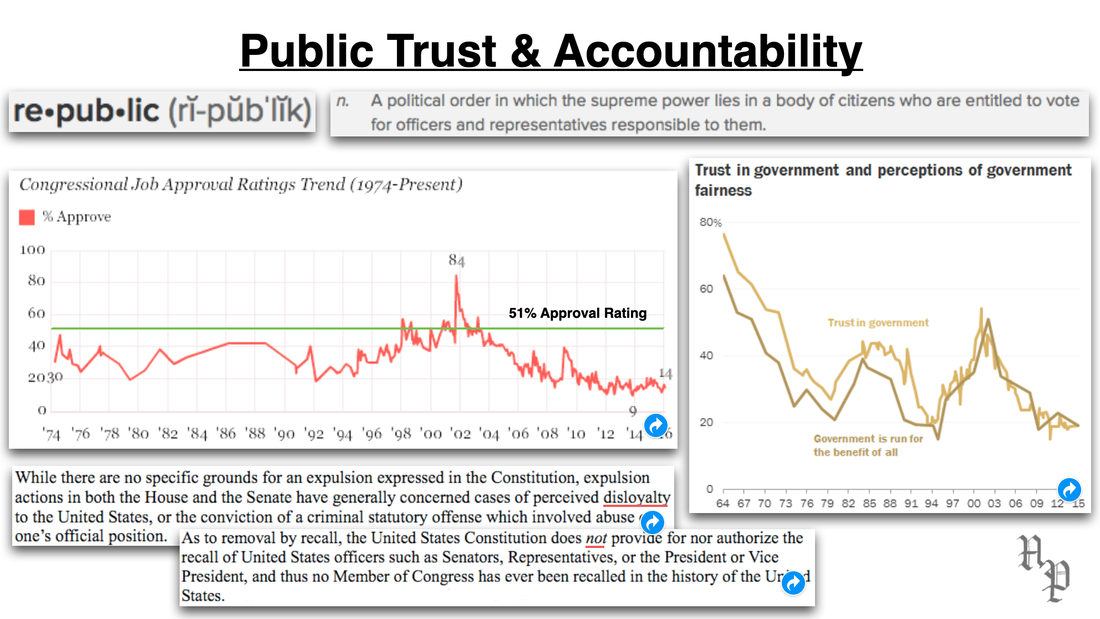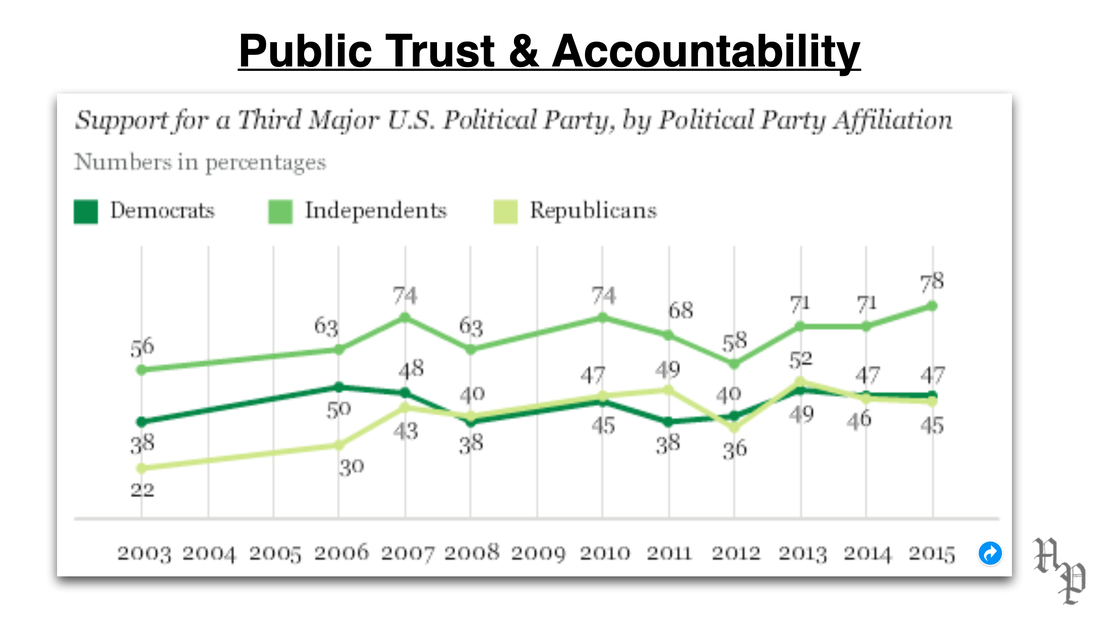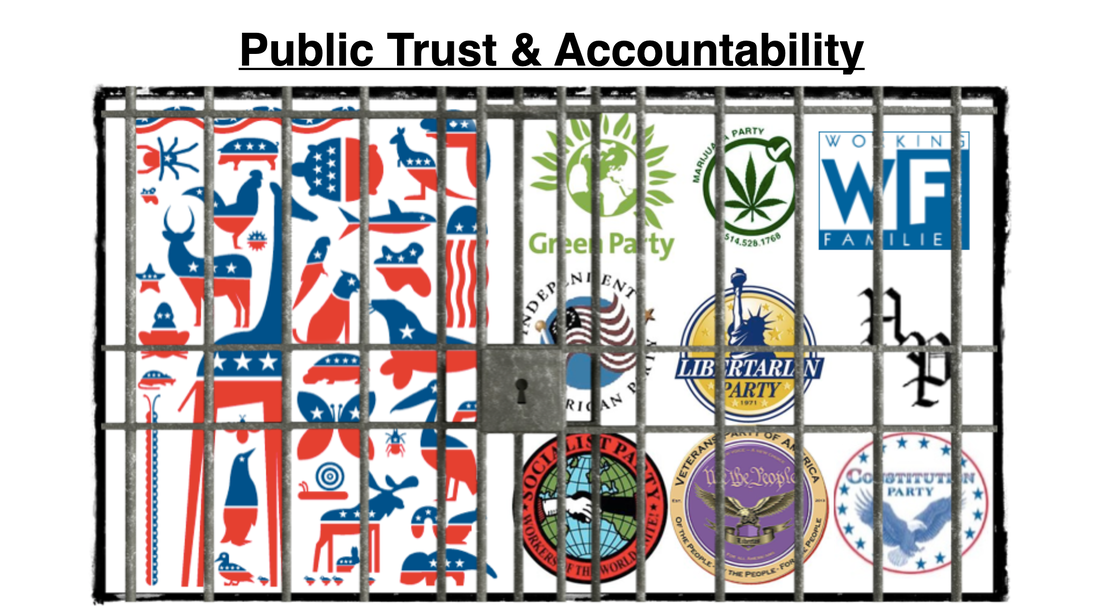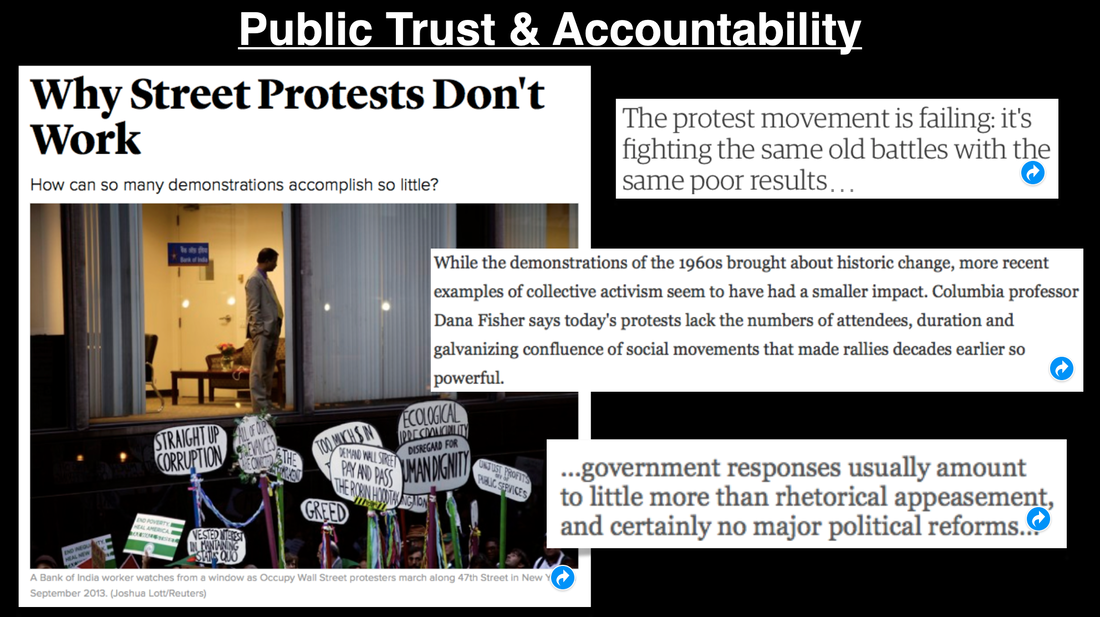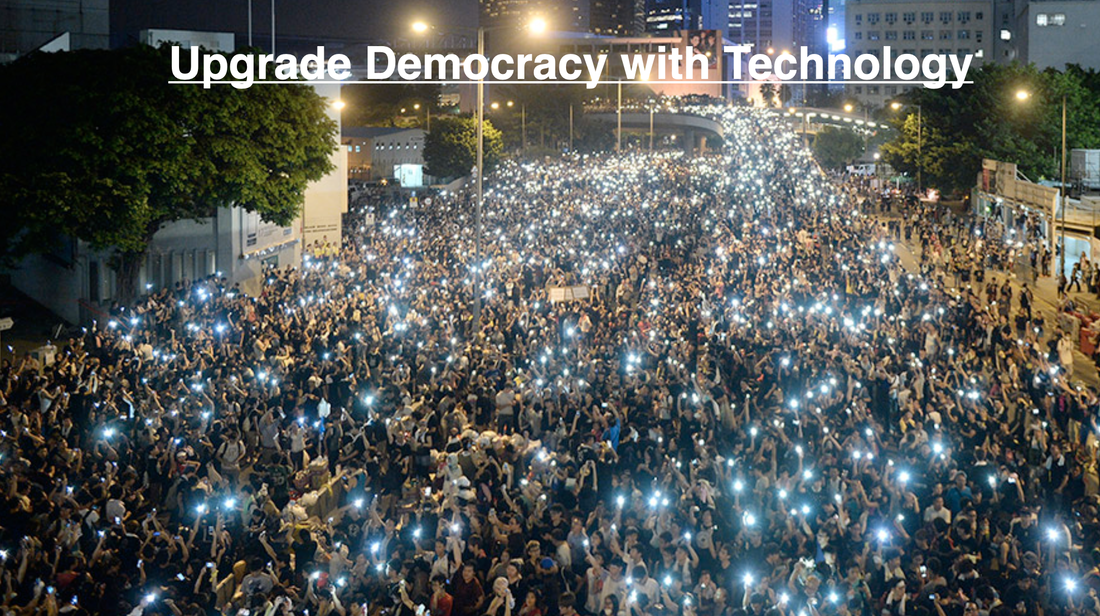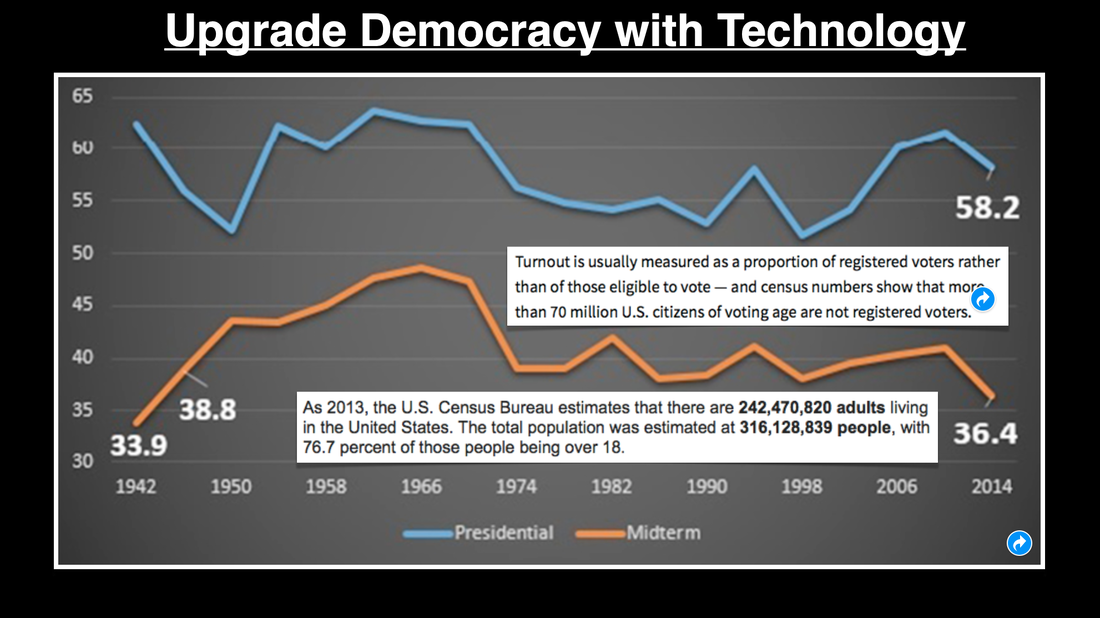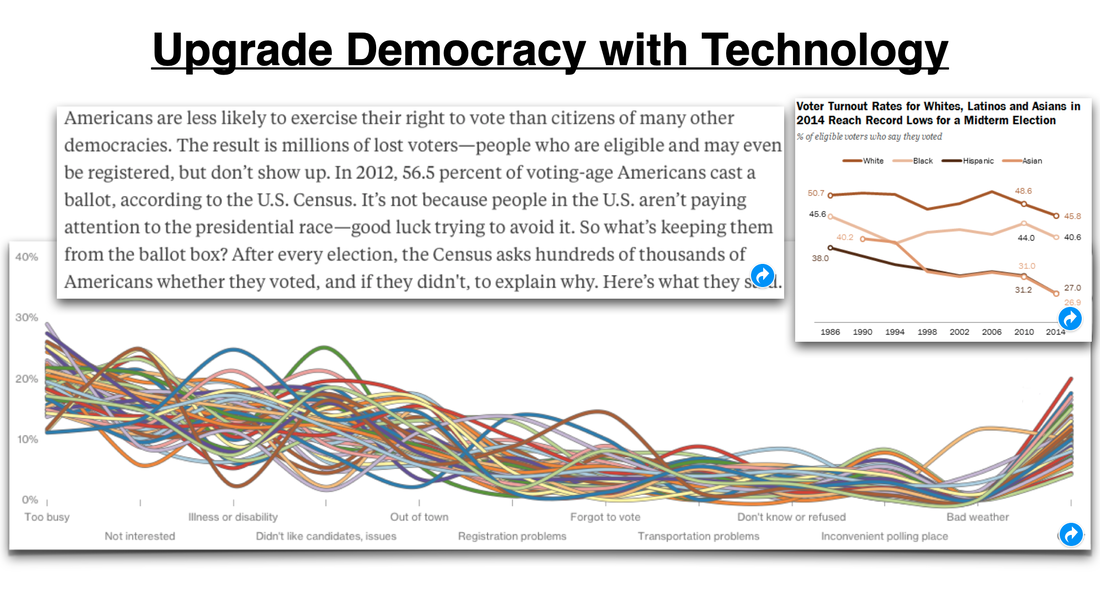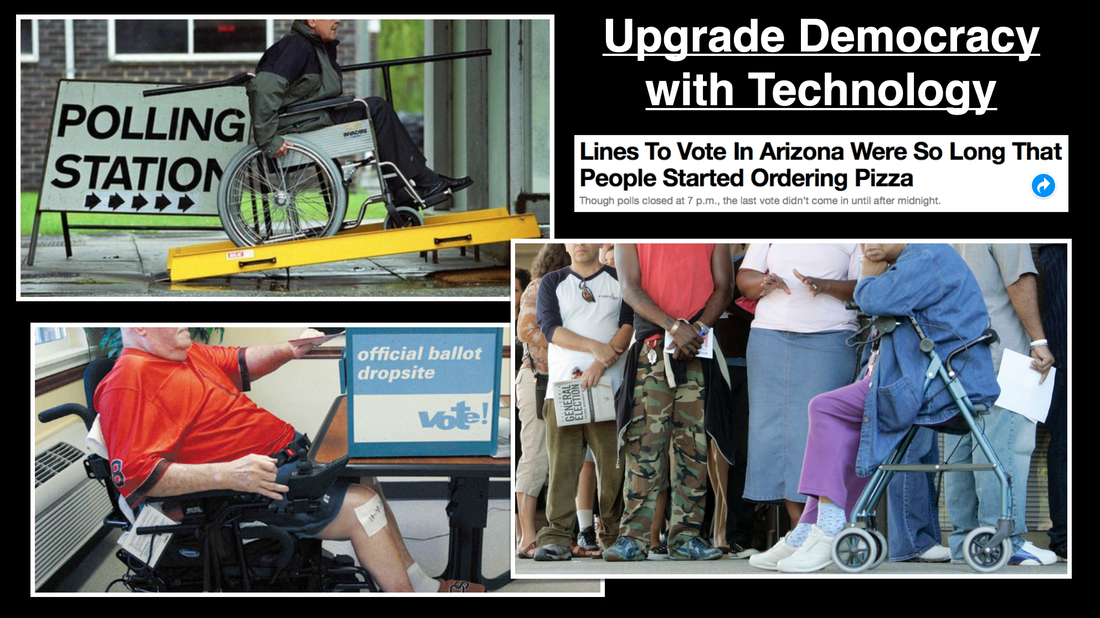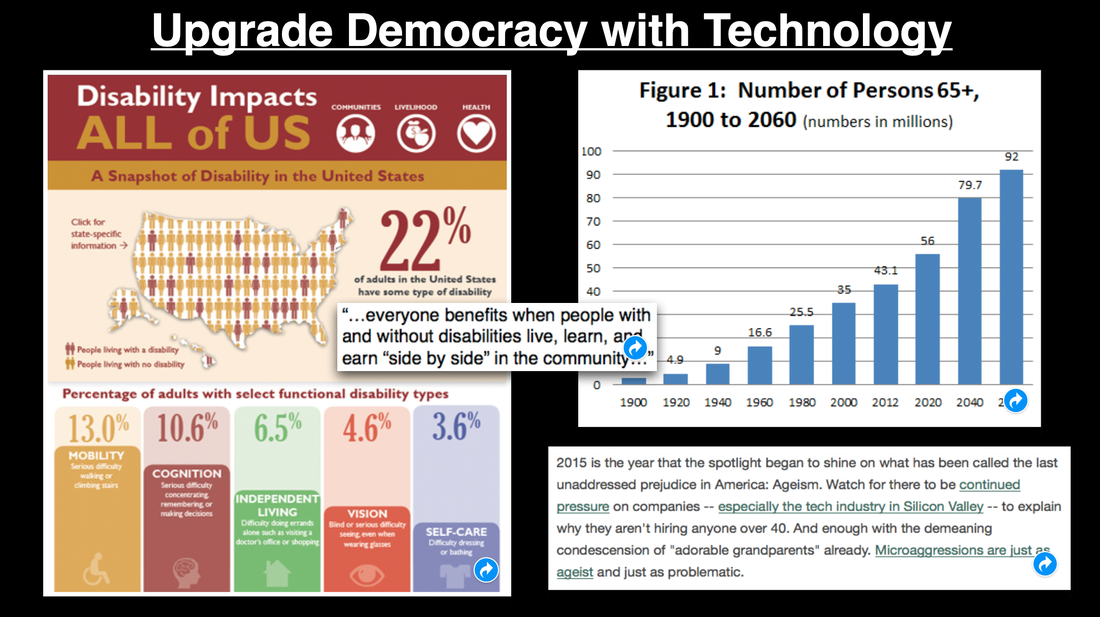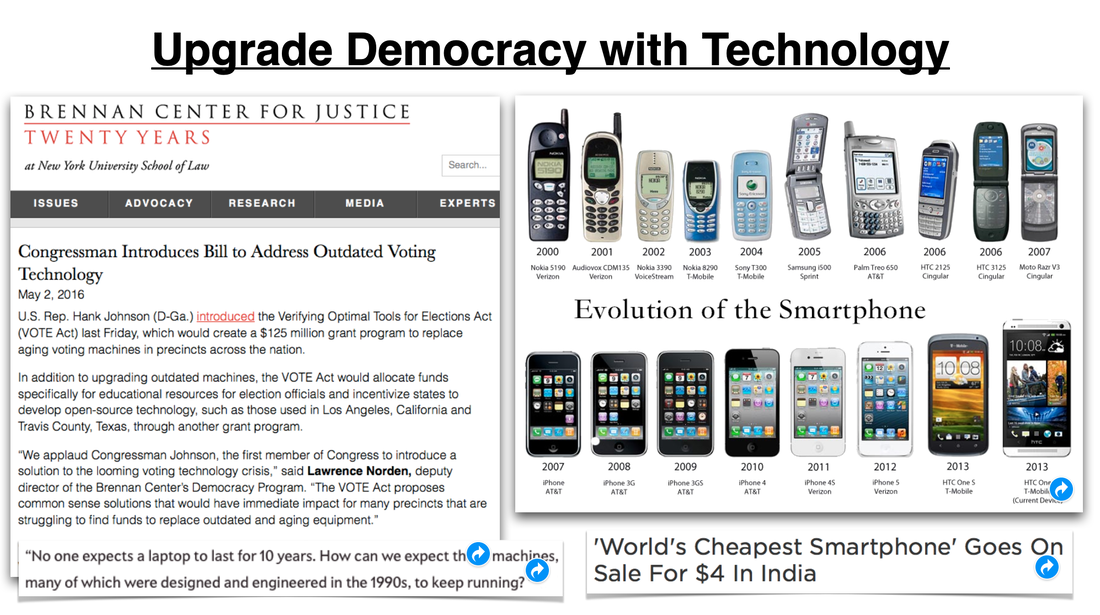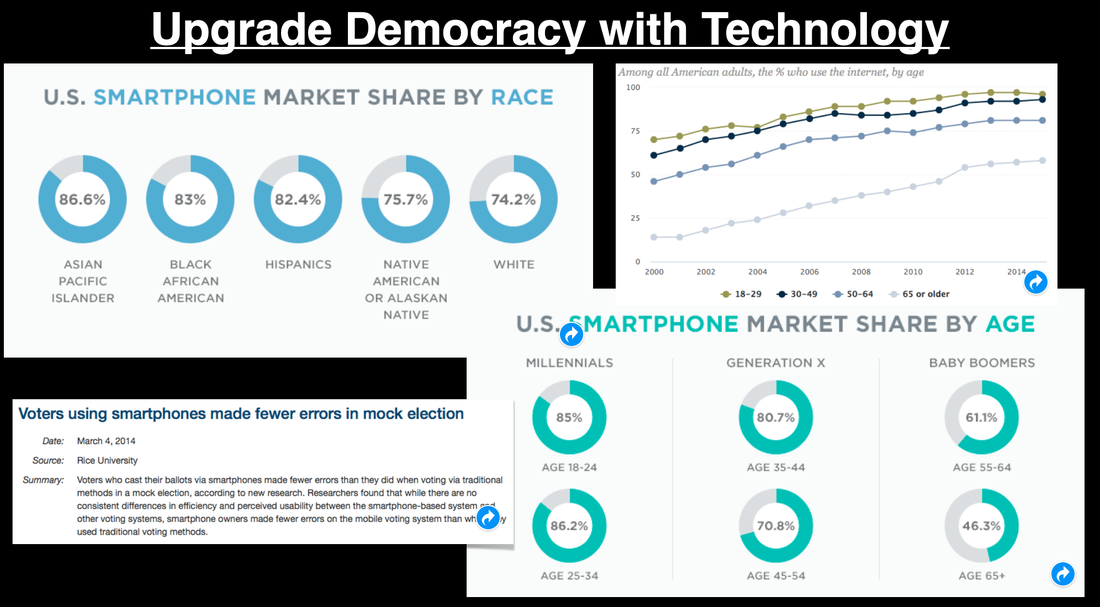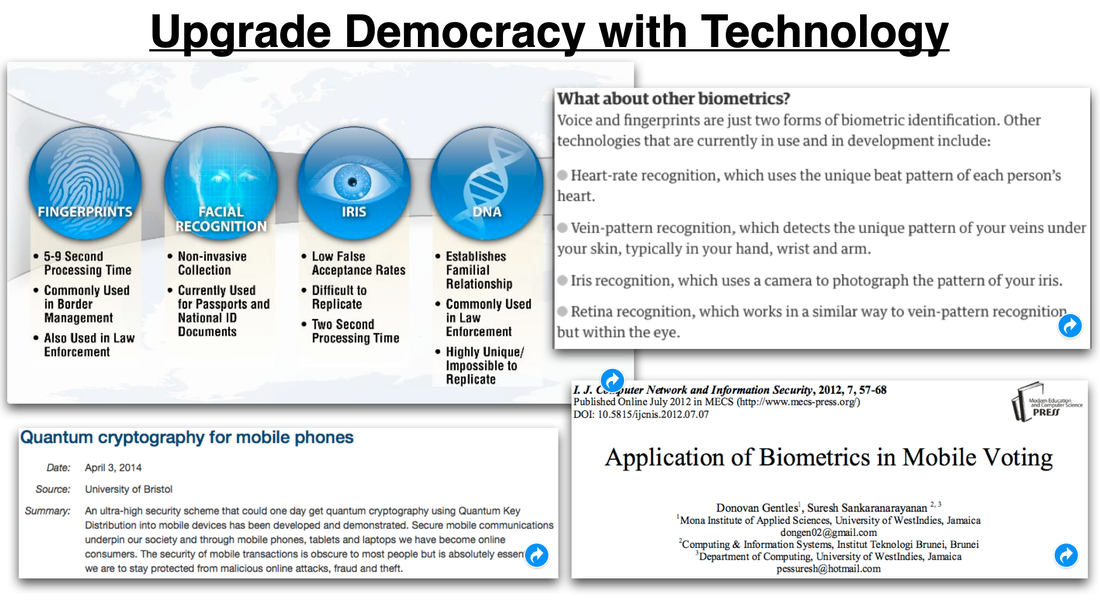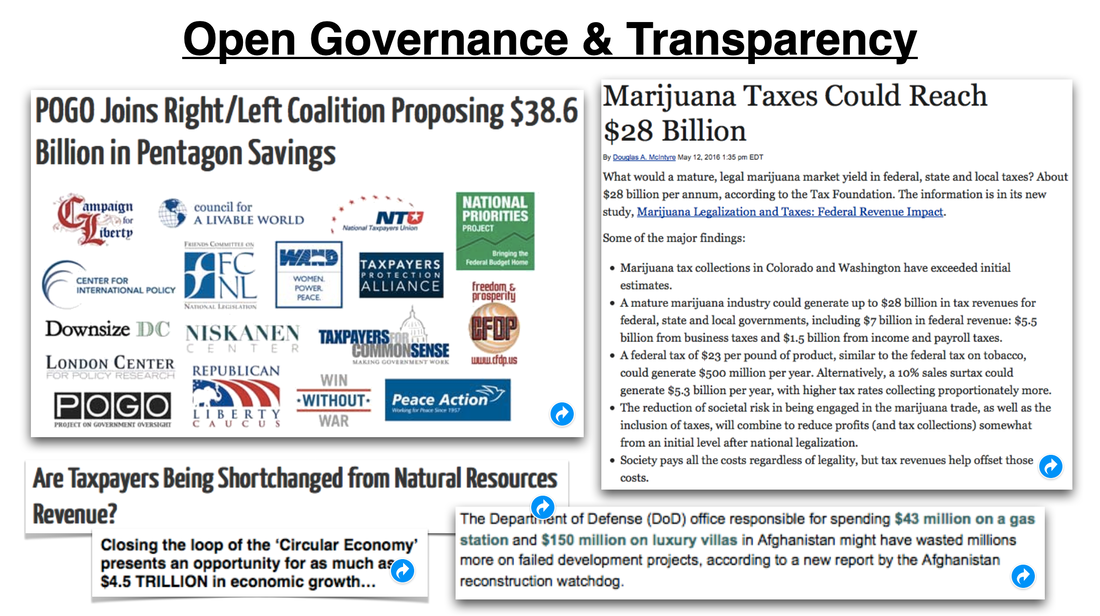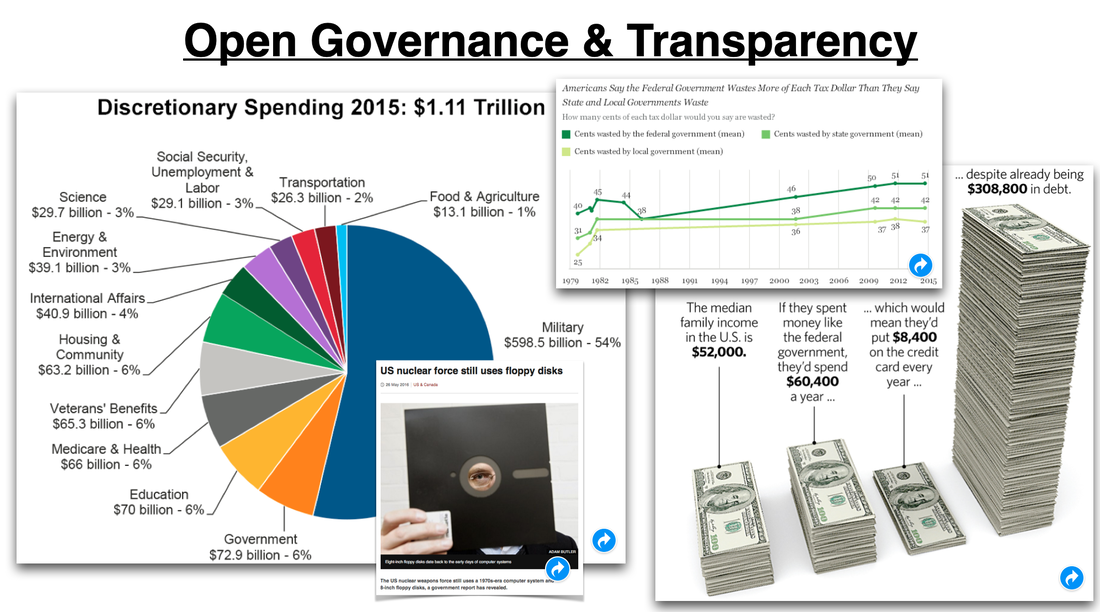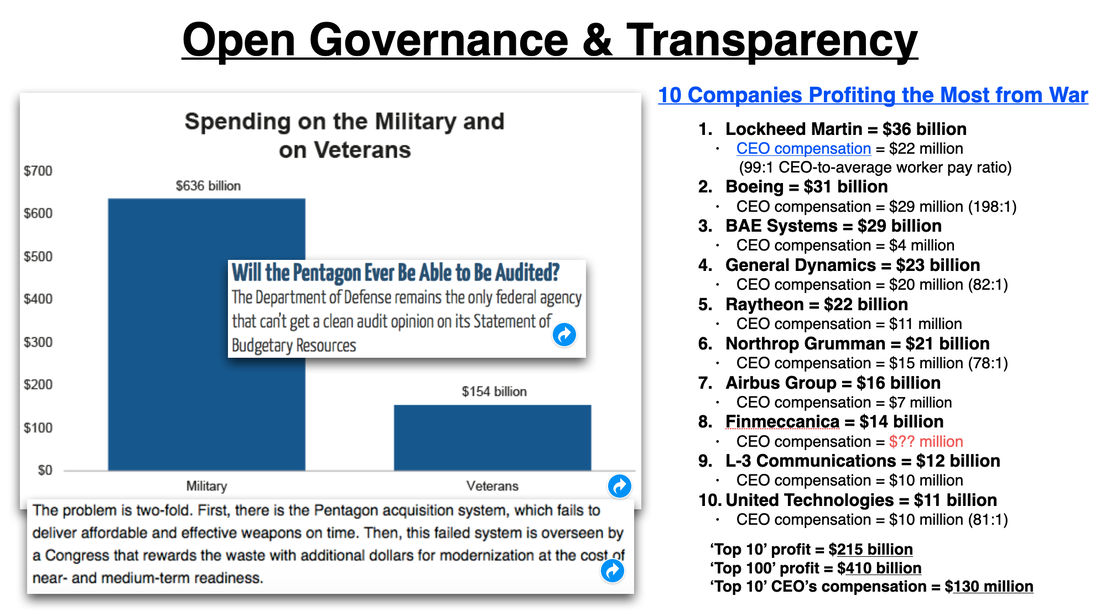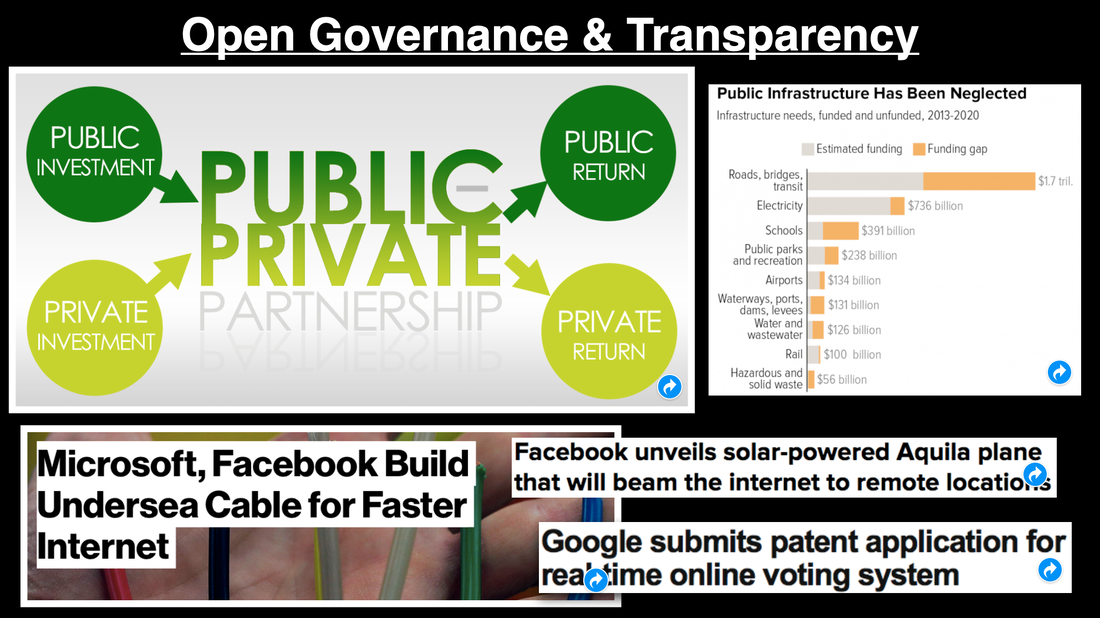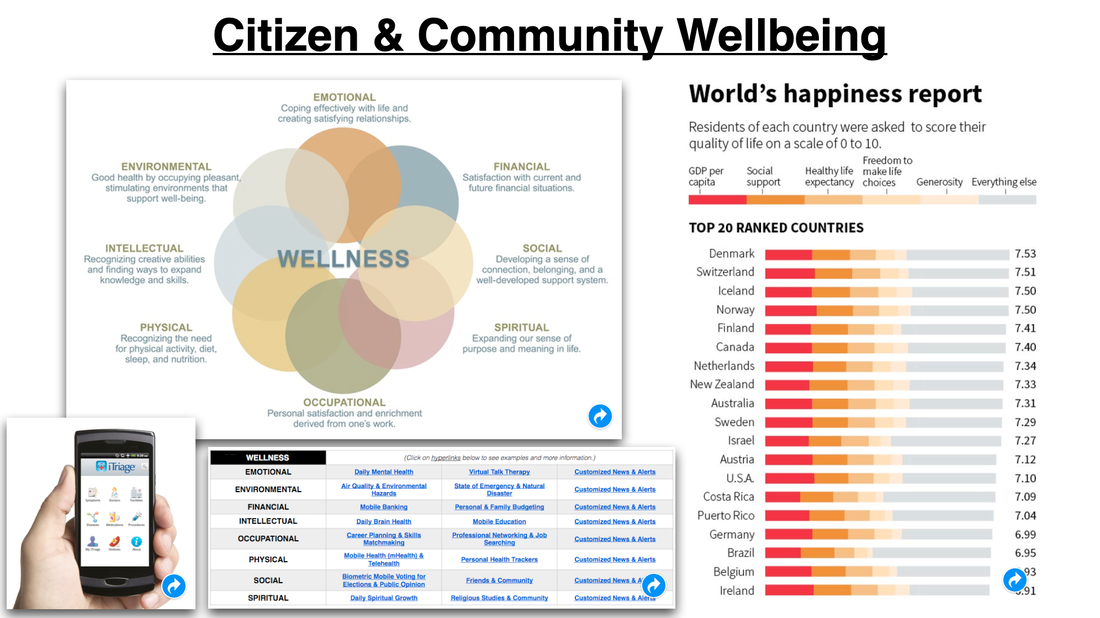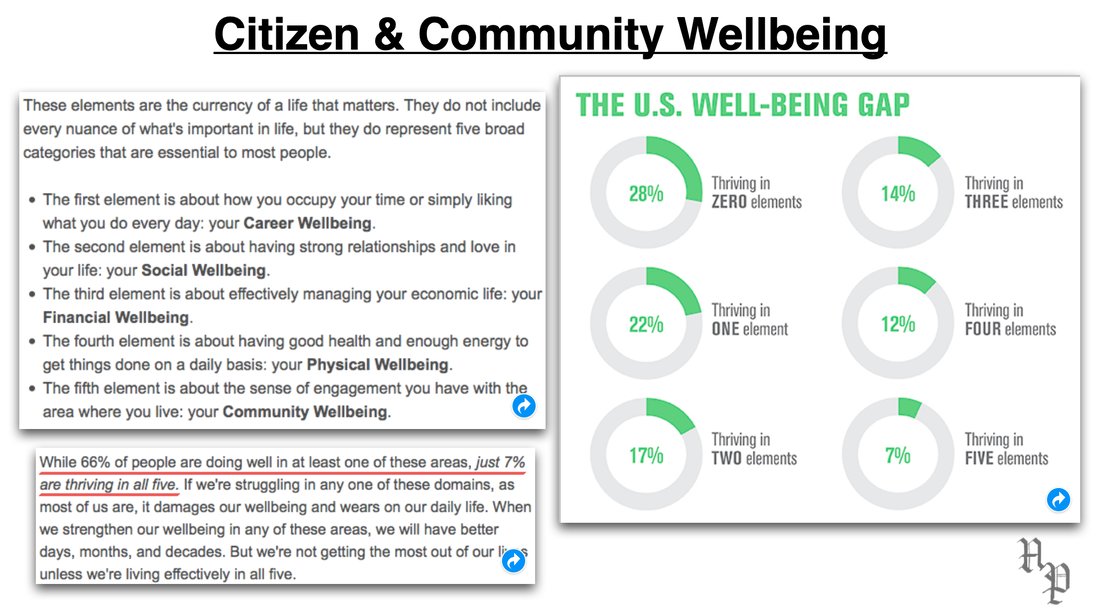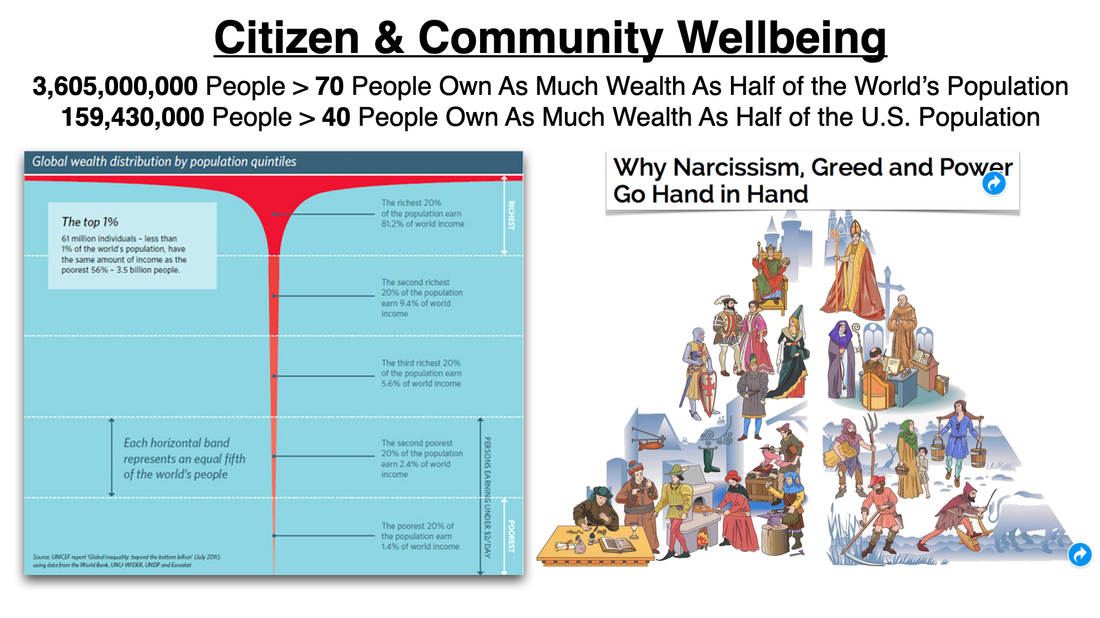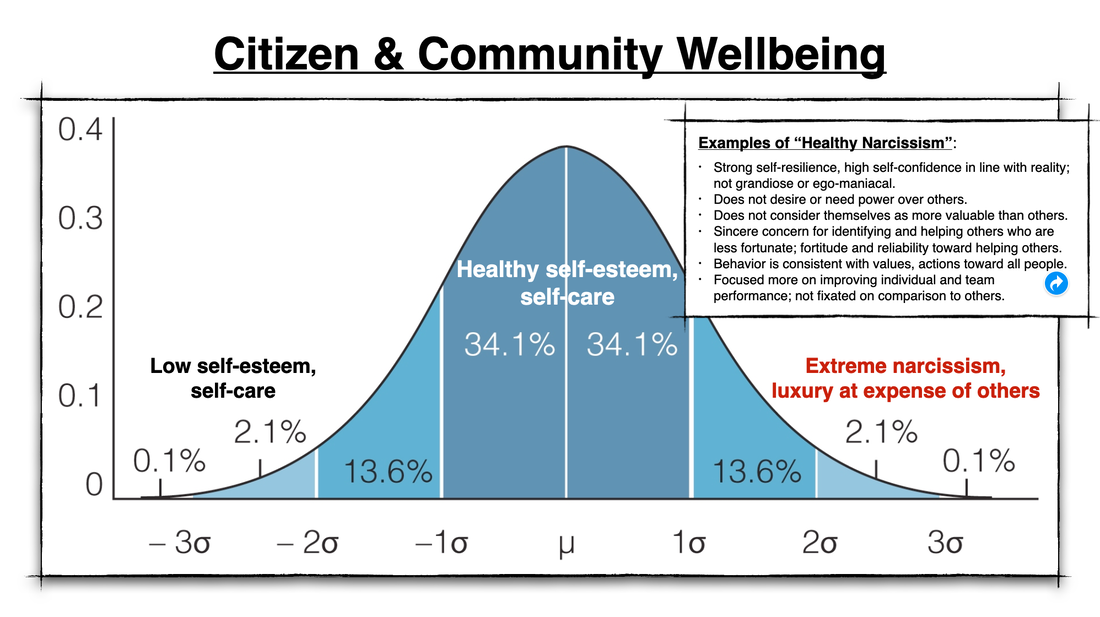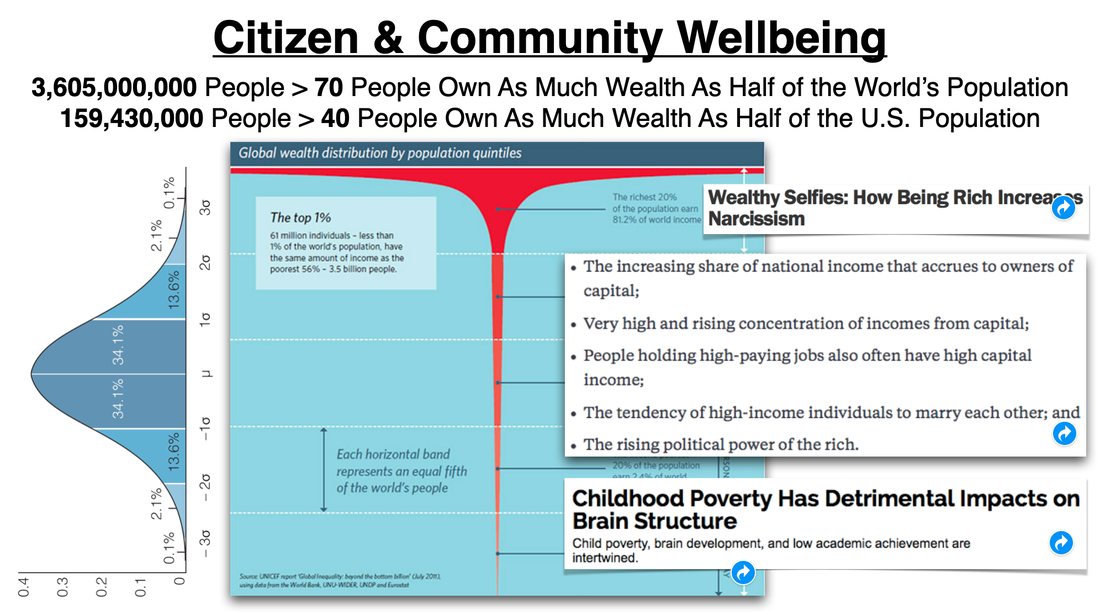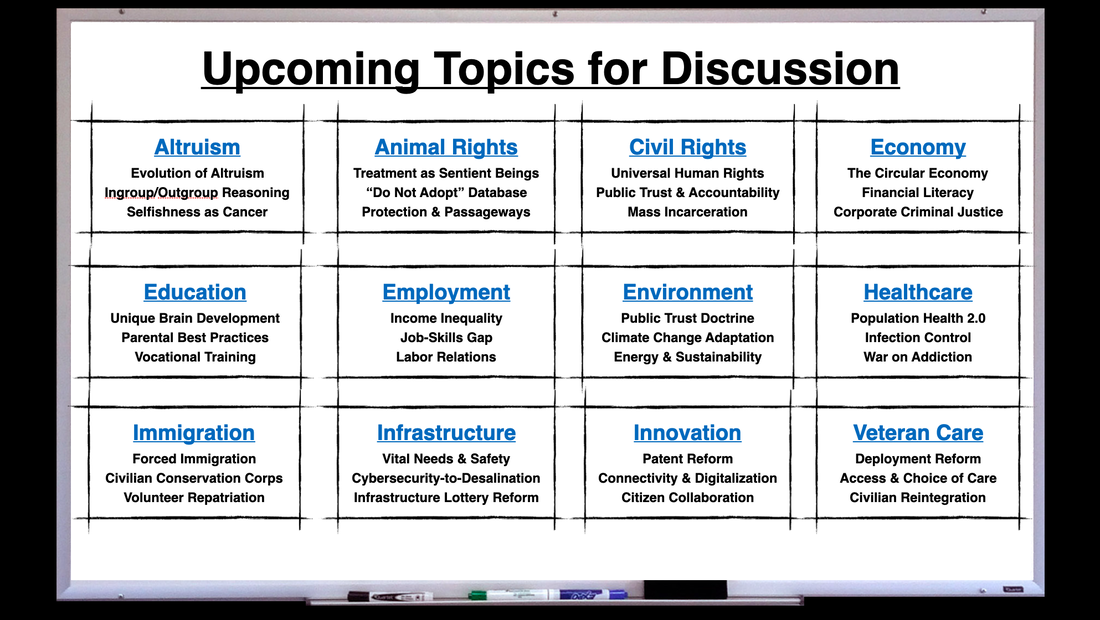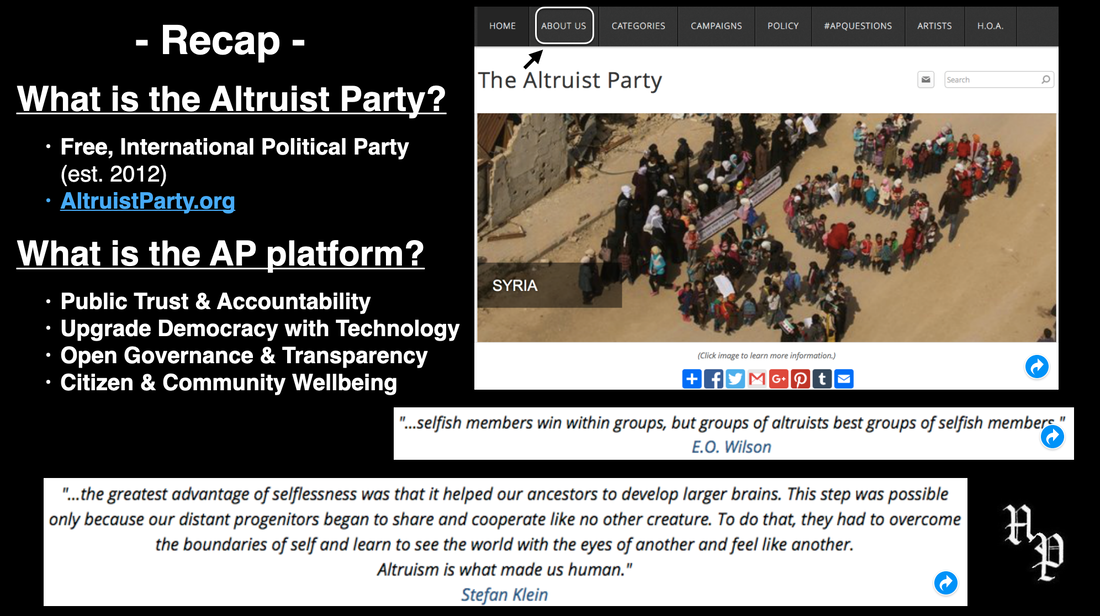2016 U.S. Presidential Campaign
June 1, 2016
June 1, 2016
(Please reference the complete set of slides here to access hyperlinks, indicated by a blue arrow icon below.)
|
“My name is Kevin Lewis with the Altruist Party and I’m running for President in the 2016 U.S. Presidential campaign. What I will show you today are some things that I’ve been working on, along with other Altruist Party members throughout the U.S. and internationally, to show the current State of the Union in the U.S. and some ideas to possibly improve things…”
|
|
“The main thing coming out of this conversation is to define who the Altruist Party is, our platform, our differentiators, where you can find more information about us, and the general philosophy of the party. Often times people can't define exactly what altruism is – for example, many think that it’s just donating stuff – but altruism pertains to a lot of other aspects of life as well, as you will see...
So, who are we? The Altruist Party is an international political party that takes pride in the fact that we are free. We do not accept donations. For me, everything is done on my own time and my own dime. Whoever works on the Altruist Party, such as working on the website, etc. does it pro bono as well. You can find our website at AltruistParty.org and anything I talk about today, even the presentation that I’m showing you, is posted on our website. Today, we’ll go through a general overview of the website but also discuss the main take home points of what makes us a different political party. I will discuss other sections in a separate presentation... On the home page of our website you will find an Altruist Party Reference Library that lists topics, current events, etc. that we are keeping track of. A lot of political parties and candidates do not transparently share what they’re keeping track of or what they know. How do you know if a candidate or party is acutely aware of what is going on in the world? What are they following? Are they even aware of what's going on? All of the things I read and what people send to us get vetted and post online for the various categories that are covered in our Reference Library. A lot of references we post are objective, meaning they are academic studies, research, etc. and not personal opinions. There are plenty of personal opinions out there, so we do our best to focus on what is most objective rather than subjective... The other thing the Reference Library provides is a good example of open governance and a transparent environment where you can interact with our party independently. The concept of the Reference Library is more of a grab bag, as there may be some topics you like and others you don't. You can interact with us on various topics as well, if you'd like... If you want to learn deeper examples of what I will be talking about today, you can go to the About Us page to learn more about our platform…” |
|
"In terms of improving public trust with the government and accountability of leaders, one of the things we’re focused on is: how do you get government leaders to acknowledge what their constituents and electorate want? The graph shown here by Gallup and shows historically low levels of Congressional approval ratings. A lot of people might see this and say, “That’s not right! We live in a democracy!” But that’s not right, either, we live in a Constitutional Republic. What that means is that we elect people to represent us based on where we live. A 14% Congressional approval rating obviously doesn’t show a lot of representation. So, one of the questions and challenges is: is this a dereliction of Constitutional duty?
Who is responsible for recalling members of Congress? They are. There is currently no Constitutional amendment for citizens to recall a Congressperson. That has never happened in the history of the U.S. Unlike other elected positions such as governor, citizens are forced to wait until elections to get rid of ineffective elected officials, and by then the damage has already been done... One of the things that prompts a recall from Congress is, in official government language, ‘disloyalty’. Disloyalty to who? The public? Congressional approval ratings look quite disloyal. How do you expand approval ratings to all levels of government and revise the recall process? Why isn't this happening already? Again, there is no Constitutional amendment in place that allows the recall of someone in Congress by citizens. What must happen is someone in Congress must perceive of a 'disloyalty' to U.S. from another member of Congress, including running the recall push themselves to get the disloyal person kicked out of Congress. Obviously, there is a bit of a monopoly or ‘duopoly’ taking place here which keeps both parties in power, amongst other disadvantages to citizens simply asking for majority representation... What we are proposing is (at least) a 51% approval rating threshold for all government levels – whether school superintendent, sheriff, judge, Congressperson, President, etc. – approval ratings should be monitored at the individual level. And if an approval rating stays below the 51% threshold for too long, then a recall referendum occurs... If you look at any candidate today, no matter who the candidate is, you have to ask: how are they going to get their policies through? The way to do that is, first of all, gain the public’s support enough to get behind you to implement something like approval ratings at all government levels to help get your policies across. What’s happened is there’s a gridlock or gatekeeper effect on democracy taking place in Congress – no matter who the President is. Presidents come and go, many in Congress and CEOs of large corporations donating to their campaigns stay the same... As you can see, trust in government by citizens has clearly taken a nosedive and has been on a downward trend since 9/11. Clearly, there is a lot of disapproval, distrust and lack of accountability going on, and very likely corruption as well..." |
|
"In terms of accountability, and for as long as we can remember, the answer has been to 'got out an protest'. But do protests really work? What usually happens after a protest? Are protests effective? Research shows that protests are typically not all that effective. What usually happens is there is some sort of demonstration and then a collective hope that the protest energy and message survives long enough to make actual, tangible change. It's also important to point out that there can be a lot of violence and hatred going on during protests, including disruption to vital infrastructure, economic loss and other damage. You also have to look at the fact people have to take off work to go protest...
Are protests also discriminatory? If you look at disabled folks, people in wheelchairs, using walkers, the elderly, etc. – they can’t go out and protest so easily. Maybe they feel strongly about something and they want to support people protesting on the street, but they can't because they are not as mobile. For example, I took off work to go down to the Illinois State Capitol for the protest supporting gay marriage. I noticed there weren’t any people in wheelchairs or using walkers in the protest, and when I walked up to the Capitol building, the legislators weren’t even paying any attention to the protest. So, you have to ask, is protesting all that effective?" |
|
"One of the things we’re promoting is upgrading democracy with mobile technology. This is an example of a pro-democracy protest in Hong Kong. You can see all sorts of examples of protests on our website taking place around the world. Just look at the incredible comradery and collective want for democracy! But they’re also blocking the roads, therefore the city is shut down. Consider the economic loss of that. The other fact to consider is you could probably triple the size of the crowd if you included elderly and disabled people, as well as other people who could not make it out to protest because they had to work...
How do you take energy like this and do something good with it? How do you get elected representatives in the window looking down on these citizens to not turn their back on them, ignore them, delay and deflect their needs to 'deal with' sometime later? That’s one of the things we’re focused on when it comes to not only holding elected representatives accountable, but also increasing voter participation, official acknowledgement of public sentiment and grievance, including the accurate measurement of it through mobile technology..." |
|
"These graphics show historical voter turnout in both midterm elections and Presidential elections. You can see that the last time voter turnout in the midterm elections was so low was about 70 years ago, which is scary considering the technology upgrades that have taken place since then…
You can see there are about 70 million people who are eligible to vote but are not registered. One concept that you’ll hear out there is that of automatic registration. Which is good, however it’s only expected to increase voter turnout by 5% to 10%..." |
|
"This graphic shows the various reasons and excuses people make on why they didn't vote and the percentage of eligible voters that came up with each reason or excuse. Unfortunately, data shows that Americans rank among the worst in the world when it comes to democratic participation in countries that give citizens the ability to vote...
In looking at low voter turnout and the downward trends taking place, you have to wonder why people don't go vote. Why? For many folks, it's because they’re elderly, disabled, working, etc. and might not trust a mail-in ballot or don't have them in their state. There are some states that are expanding voting rights, however there are many more that are suppressing them. Right now, there are at least 14 states that have created new voting laws and they are all suppressive... Think of the image of all those people protesting in Hong Kong, raising their phones up and the incredible potential to increase voter participation, measurement of public sentiment, and collaboration with the government. We should be able to upgrade democracy using mobile technology in a secure and safe way. It would help resolve such issues as too busy, elderly, disabled, out of town, registration problems, forgot, etc. There are a lot of ways we can use mobile technology to help improve democracy…" |
|
"There are a lot of folks out there who are disabled yet are incredible participants in democracy. They would love the ability to help improve their communities and have their voices heard in a convenient and believable way. We need to make it easier on these folks. It’s not cool that people wait so long in line to vote now that they can order a pizza..."
|
|
"We must make life easier on the disabled and the elderly population. We’re going to have such an increase in the elderly population, we have to give them better means to share their voice and vote easily. We're all going to be there someday, hopefully, and just because someone is older doesn’t mean they are less valuable in any way and their voice means nothing…
So, how do we make democratic participation easier for everyone? We do it side-by-side. When you start to look at folks side-by-side, you see that we want a lot of the same, basic things and healthy wellbeing…" |
|
"Who is going to pay for this upgrade to democracy? Right now we’re using 1990s voting technology. This graphic shows all of the different upgrades to phones, technologies and functions that could easily apply to help upgrade voting...
To clarify, the basic mobile connectivity that we’re talking about as a human right does not involve watching shows and movies, playing games, being on social media, etc. What we are promoting as a party is basic mobile connectivity as a human right, not only to be able to vote from your phone, but also receive vital information..." |
|
"If you look at the statistics of who has a mobile phone already in the U.S., it’s a pretty good situation. What we’re promoting is not that everybody gets a mobile phone, we’re just saying that if you want one you can get one. Around 5% of the population doesn’t even want a cell phone at all, they would rather stay disconnected and that’s understandable. If you look at the statistics of who currently owns a mobile phone, it’s mostly the older generations that need to catch up. Also, a recent statistic showed close to 90% of all Americans have internet access, meaning that the remaining 10% of the population are trapped in what’s called the ‘digital divide’. This means they can’t connect to the internet in a reliable and convenient way...
If you take the current 2013 U.S. census and calculate out by age how many people it would take to get 95% of Americans a mobile phone, the number comes out to around 15 million. You can see that most of us are already have mobile phones, are connected to the internet, and like being connected..." |
|
"One thing we're promoting is voting using biometric security on mobile phones. Today, when you go to a voting location, they ask you for identification and someone looks at your ID and subjectively determines if it’s you, kind of like the bouncer method. Biometric security such as facial recognition, vocal recognition, iris and retina recognition, vein recognition, ear shape recognition, etc. all now exist and are available...
When you look at biometric security that is already available today, why would we not use it to identify people more securely? Airports are already doing it. Driver's licenses are all scanned into a database. So, why not use the technology to be able to vote securely using our mobile phones? First, we have to connect everybody who wants to be connected and make sure it’s secure. A lot of people fear cybersecurity issues and that's understandable. There are examples of advances in cybersecurity, such as quantum cryptography that is now available and virtually unbreakable... In February 2012, we first started promoting biometric mobile voting as a way to upgrade democracy. It was apparent at the time that it was not a concept that had been discussed or promoted anywhere else in the world. A case study in Jamaica was published in July 2012 regarding the potential as well. So, you can see discussions of biometric mobile voting are starting to bubble up in different places in the world…" |
|
"How do we increase public trust and accountability, including open acknowledgment of public sentiment? You do it through mobile technology. How do you get folks to believe in mobile technology in that way? You show them the potential of biometric mobile security and cybersecurity like quantum cryptography, and you innovate state-by-state. Each state can create its own system based on what its people want to see. That way, different states can monitor each other’s innovations (e.g., user interfaces, apps, etc.) and implement features that the people prefer...
Going back to the question of 'Who is going to pay for all this?', we're promoting open governance and transparency to identify wasted government spend as at least one resource. There is a lot of spend out there that is not monitored and gets wasted, so it is easy to find the funding to support this type of initiative. For example, third-party government watchdogs found over $38 billion in savings looking at spending by the Pentagon alone. A tiny fraction of that money would pay for what I’m talking about. There’s a lot of money out there that progressive and innovative watchdogs are monitoring on their own time and that wasted spend can be repurposed. Wasted spend is a good example of why we need open governance... Also, are we getting as citizens – and this also applies to Native American and slave descendant reparations – proper revenue from natural resources from the land we live on and our tax dollars support? How do you get these topics into mainstream public discussion to fund improvements to democracy as well individual and community wellbeing? Not too many people that have heard of third party government watchdogs, but we as citizens should want to work with them. This is about transparency, open governance, and bringing everything in the light…" |
|
"In looking at how the U.S. government spends money, there are three categories where your tax dollars are spent: mandatory spending based on laws previously established (e.g., Social Security, health programs such as Medicare, various income security programs, etc.), discretionary spending (e.g., military, transportation, education, housing, social services, science and environmental organizations, etc.), and supplemental spending (e.g., relief efforts from a financial crisis, natural disaster, pandemic, etc.)
Where would the funding most likely come from for what the concepts I'm talking about? It would most likely come from discretionary spending. This type of spending is where Congress decides where tax dollars gets spent each year. You can see that a huge amount of taxes you pay – collectively over $630 billion – is going toward military spend. Despite that level of spend, you see headlines like this, where the U.S. military is still using floppy disc and 1990s level technology. There has got to be a way to budget - such as just $1 billion from the $630 billion military budget - toward improving the ability of folks to receive vital information and participate conveniently and securely from their mobile devices as a human right... A majority of Americans believe that over half of all tax dollar spend gets wasted every year, so there is definitely strong belief that there is wasted spend going on throughout the government that would be better spent repurposed..." |
|
"If you look at just military spend alone - which is currently over $630 billion - the Pentagon has never been audited, so there is no way to precisely identify wasted spend. In the meantime, we have crumbling roads and bridges, lead and other chemicals in our water, etc. Issues where you could shift some military spend toward improving our nation's infrastructure…
There is also a lot of imbalance when it comes to companies profiting off of U.S. wars and weaponry and what these companies' CEOs are making versus their average worker. You can see there is a lot of imbalance when it comes to wealth distribution in these companies and whether they could be nicer to their workers, including hiring veterans and helping reintegrate them back into civilian life…" |
|
"One thing I mentioned before is public-private partnership. There are examples out there where the government did not have to spend a lot of money to improve infrastructure and private companies stepped in to help. Especially vital infrastructure improvements such as fixing roads, bridges, schools, healthcare, etc. The same could be done to help upgrade democracy in ways that I’m talking about today. Unfortunately, I have yet to hear of a single example of a CEO or billionaire talking about ways to help improve democracy..."
|
|
"Along with improving public trust and accountability, upgrading democracy with technology, and establishing open governance and transparency – we want to help improve folks’ lives and wellbeing at both the individual and community level(s). If you look at different dimensions of wellbeing and helpful apps that are available today, there are many tools out there that can help individuals improve several dimensions of their wellbeing...
In terms of quality control on apps, there would need to be some sort of certification process or third-party scrutiny to help determine which apps were trustworthy and reliable, with solid credibility and customer support structure. Also, there would not be just one app for people to choose from, as that would inhibit creativity, objectivity and options for citizens. For instance, you wouldn’t have just one option that sucks... There are a lot of examples of apps and information available that could make up what I call a ‘Citizen Lifebook’. Telehealth apps are a good example, creating the ability to have virtual visits with your doctor or therapist, being able to promote your personal job skills in what’s called the ‘slash economy’, etc. The best way to do this is to connect all of us using existing infrastructure and technology... When you look at the World Happiness Report and the similarities and differences between countries, we could use technology to help identify and replicate what’s going on in happier countries, borrowing from each other’s ideas and best practices globally as one human family…" |
|
"Another way to measure citizen wellbeing – such as this example provided by Gallup – is to look at how folks are doing in these five different elements of wellbeing. According to Gallup's polling, how are people feeling out there? Unfortunately, you can see that only 7% of people feel like they’re thriving in all five elements of wellbeing. A third of the population feels like they’re not thriving in any element of wellbeing at all..."
|
|
"When you consider a general bell curve that could be applied to any population anywhere in the world throughout history, you will always have some folks that are raised extremely narcissistic, psychopathic, sociopathic, etc. However, they do not make up the majority of the population. There are healthy levels of narcissism, such as having strong self-resilience and self-confidence in line with reality, not needing power over others, constant praise and attention, etc. These people tend to help in times of need and value social harmony. They feel self-confident, but do not need to 'win' and hold power over others…"
|
|
"What is dangerous is when you have situations like this, when extremely narcissistic individuals have extreme levels of money and therefore power. How does this inequality effect the wellbeing of others? Also, how does this extreme level of inequality even happen?
The things I focus on first and foremost are health related. If you look at the effects of poverty on a child’s brain development between the ages of 0 through 5 – a period in which 90% of all brain development takes place – poverty inhibits and stunts brain growth and connectivity so much that the damage is lifelong and has been linked to increases in violence, diabetes, obesity, etc. It takes money to make money, people say, but it also takes money to hoard money. When extreme narcissists get too much money, it can be dangerous. When extreme narcissists with money and power have children, they often have a difficult time teaching empathy to their children because they have never been poor, struggled to find a job, felt food insecurity, etc. That's why wealthy people say to the homeless without sense of empathy, "Go get a job..." When we talk about helping to get the needs of people in poverty into the hearts and minds of those with money and power, we’re not talking about forced redistribution of wealth. We’re talking about capitations on things like the average CEO-to-worker pay ratio for companies. For instance, there’s no reason a CEO today in the U.S. should be making 350 times more than their average employee…" |
|
"To recap, the Altruist Party is a free international political party. We do not accept donations, your ideas are more valuable. You can come and go as you please, vote for us or not as you please, etc.
Our website is a toolbox to share information and communicate with each other. You will see everything we’ve talked about since the inception of the party posted on our website…" |
|
Thank you for reviewing! Please review the second set of slides here.
|


